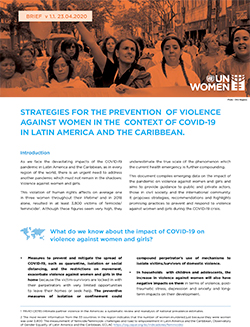The pandemic’s impact due to COVID-19 on violence against women
Confinement measures and social distancing, as well as mobility restrictions are generating increased risks of violence against women and girls, intensifying their isolation and generating additional barriers in access to essential services.Date:
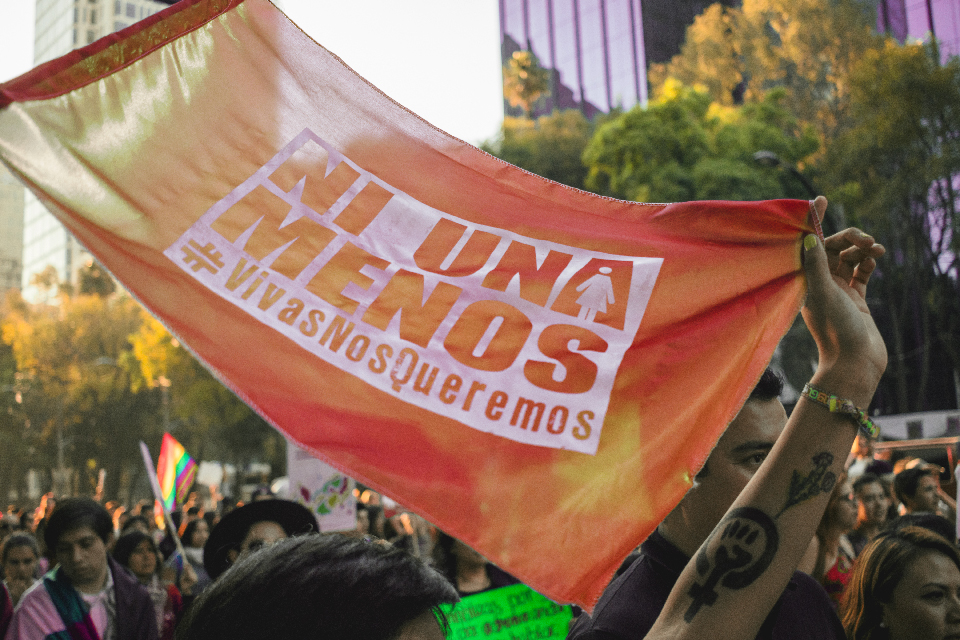
As the COVID-19 pandemic deepens economic and social stress, it may also intensify gender-based violence, particularly in the domestic sphere. Perpetrators may be experiencing unemployment, economic instability, or stress, which can amplify the frequency and severity of violence against women.
Although there is no systematized data on the impact of the pandemic and confinement measures on femicide rates, rapid studies are underway in countries such as Colombia, Mexico and Chile that could provide relevant information to assist governments in their decision-making process.
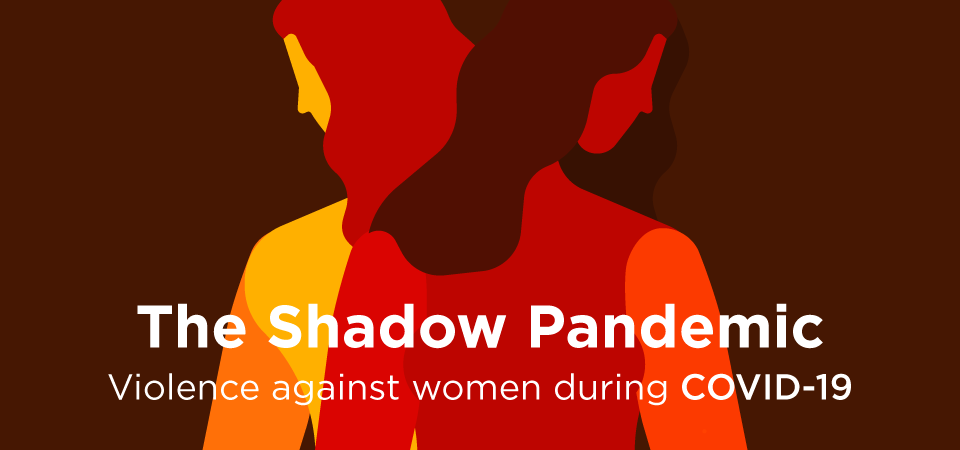
The Shadow Pandemic: Violence against women during COVID-19
Although it is not possible to draw conclusions about the data in the midst of the crisis, it is urgent to take action because, even before COVID-19, violence against women in Latin America had pandemic dimensions.
According to data from the Pan American Health Organization, in Latin America and the Caribbean, 1 out of every 3 women has experienced physical or sexual violence during her lifetime and, according to ECLAC, in 33 countries in the region, during 2019, the number of gender-based killing of women exceeded 3,800.
Actions to put an end to the other pandemic
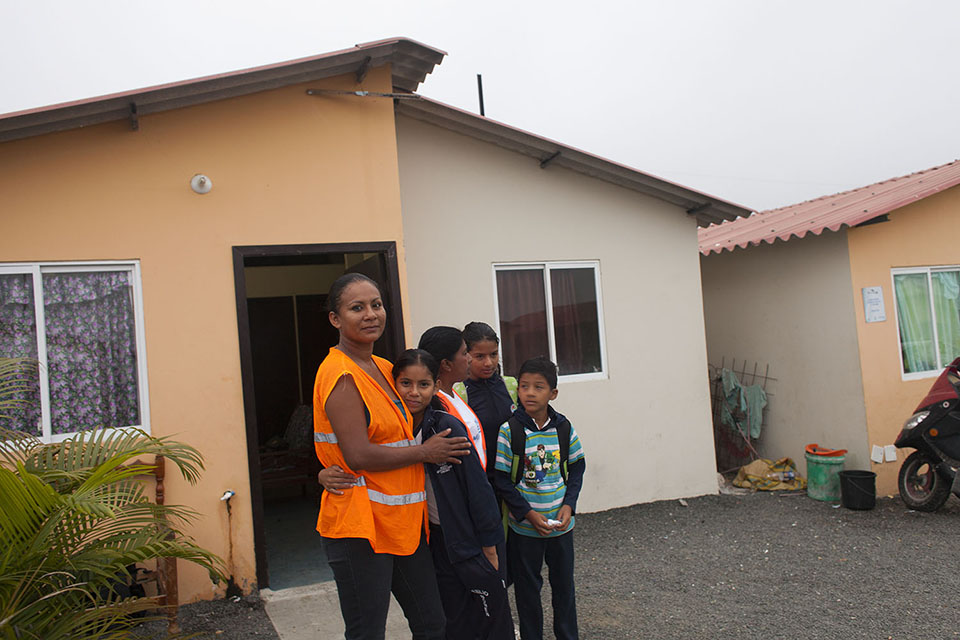
UN Women welcomes the fact that many States have responded to violence against women and girls by adopting measures such as declaring an essential service the care for victims, establishing partnerships with hotels to provide free shelter for women victims and survivors, and automatically postponing the expiration of precautionary measures protecting victims of violence within quarantine measures.
However, barriers to women's access to justice and essential care services persist. In some countries, care has been disrupted or institutions have focused on responding to the most urgent aspects of the crisis, such as enforcing measures of social confinement, which may result in greater impunity for perpetrators.
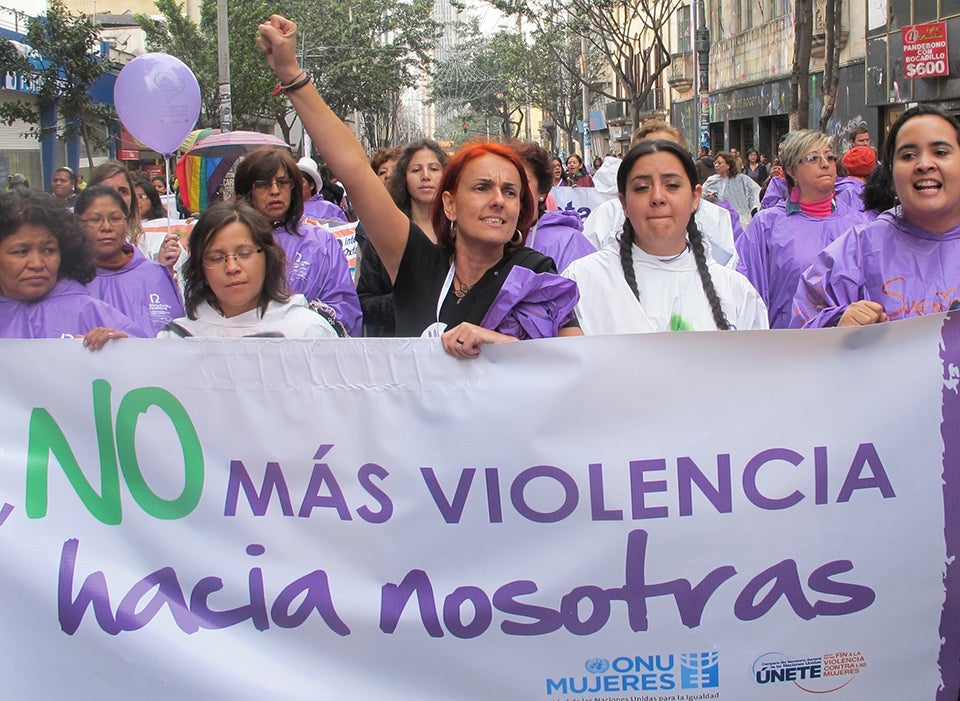
At the same time, women's civil society organizations are under great pressure to adapt their services to new realities and to respond to an increased demand without additional resources. In this sense, if there is no effective response from the authorities, violence can escalate into more extreme forms such as femicide.
UN Women has called upon governments, the international community, the private sector and other actors to prioritize prevention, care and punishment of violence against women and girls through four main strategies:
- Access to care: Ensure access to essential care services, i.e., facilitate access to the justice system, hospitals and health care services, legal advisory and psychosocial support.
- Partnerships with organizations: Work closely with civil society organizations and networks of women human rights defenders. These organizations are the experts on women's needs and it is important to strengthen their capacities and resources to respond to the crisis.
- Zero tolerance: Have zero tolerance for gender-based violence, ensuring that police and judicial services prioritize attention and punishment of violence. In parallel, involve the community to unite against gender violence.
- Invest in prevention: Increase investment in prevention through education programs, public campaigns and programmes geared towards the empowerment of women and girls, seeking to transform harmful masculinities or social norms that encourage or tolerate violence against them.
Tools to eradicate violence
UN Women produces tools to promote a response to COVID-19 in Latin America and the Caribbean with a gender lens. The document Strategies for the prevention of violence against women in the context of COVID-19 in Latin America and the Caribbean guides different social actors on strategies, recommendations and promising practices to prevent and respond to gender-based violence in the framework of the pandemic crisis.
Likewise, the Spotlight Initiative, the largest global effort focused on ending all forms of violence against women and girls, which stems from a global partnership between the European Union and the United Nations, adjusted its action plan with aims to respond to the needs that emerged with the COVID-19 crisis.
For example, the activities are now focused on strengthening the networks that attend victims of violence, particularly shelters, to ensure that the provision of services is aligned with the new sanitary dispositions. The networks of women human rights defenders are also being strengthened in terms of the work they do in preventing and attending violence.
Additionally, from Spotlight, UN Women is promoting the generation of quality data that allows the dimension of the problem to be visibilized, by comparing data among countries and thus providing a tailor-made response for every situation.
2020 UNiTE Campaign Theme: "Orange the World: Fund, Respond, Prevent, Collect!"
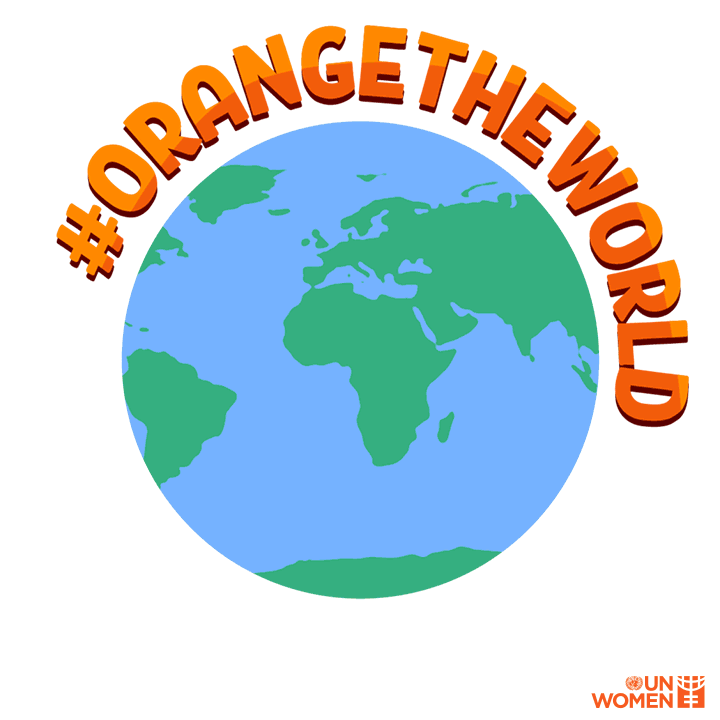
The UN System’s 16 Days of Activism against Gender-Based Violence activities, from 25 November to 10 December, will take place under our 2020 global theme: "Orange the World: Fund, Respond, Prevent, Collect!" More informatio
More information here.
